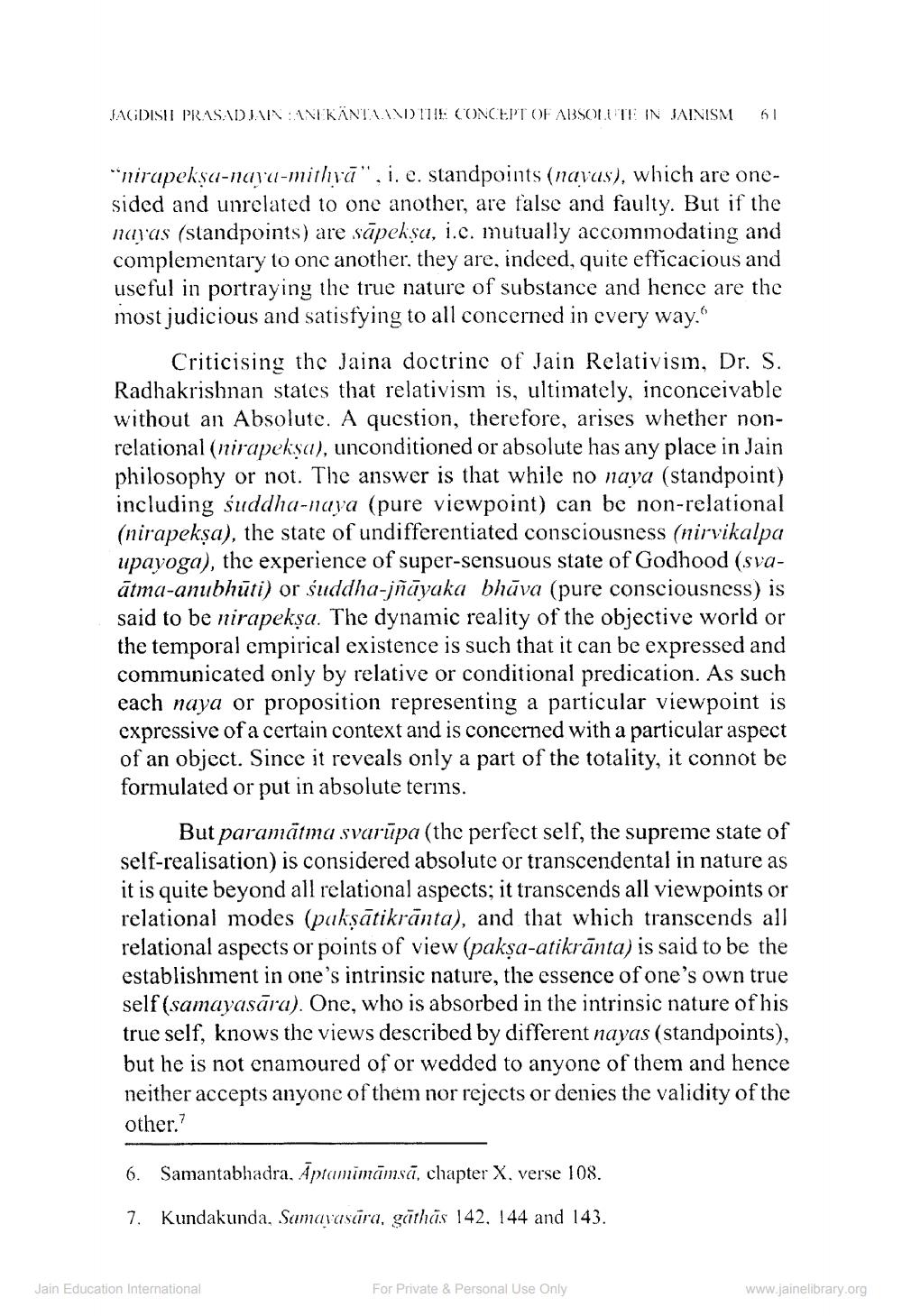Book Title: Jain Journal 2005 10 Author(s): Jain Bhawan Publication Publisher: Jain Bhawan Publication View full book textPage 8
________________ JAGDISU PRASADJAN : ANEKANTAINDITE CONCEPT OF ABSOLUTE IN JAINISM 61 anirupekșa-nayu-mithrū", i. c. standpoints (navus), which are onesided and unrelated to one another, are false and faulty. But if the nalas (standpoints) are sāpeksu, i.e. mutually accommodating and complementary to one another, they are, indeed, quite efficacious and useful in portraying the true nature of substance and hence are the most judicious and satisfying to all concerned in every way." Criticising the Jaina doctrine of Jain Relativism, Dr. S. Radhakrishnan states that relativism is, ultimately, inconceivable without an Absolute. A question, therefore, arises whether nonrelational (nirapeksa), unconditioned or absolute has any place in Jain philosophy or not. The answer is that while no naya (standpoint) including suddha-nava (pure viewpoint) can be non-relational (nirapekṣa), the state of undifferentiated consciousness (nirvikalpa upayoga), the experience of super-sensuous state of Godhood (svaātma-anubhūti) or suddha-jñāyaka bhāva (pure consciousness) is said to be nirapekṣa. The dynamic reality of the objective world or the temporal empirical existence is such that it can be expressed and communicated only by relative or conditional predication. As such each naya or proposition representing a particular viewpoint is expressive of a certain context and is concerned with a particular aspect of an object. Since it reveals only a part of the totality, it connot be formulated or put in absolute terins. But paramātma svarūpa (the perfect self, the supreme state of self-realisation) is considered absolute or transcendental in nature as it is quite beyond all relational aspects; it transcends all viewpoints or relational modes (pakşātikrānta), and that which transcends all relational aspects or points of view (pakşa-atikrānta) is said to be the establishment in one's intrinsic nature, the essence of one's own true self (samayasāra). One, who is absorbed in the intrinsic nature of his true self, knows the views described by different nayas (standpoints), but he is not enamoured of or wedded to anyone of them and hence neither accepts anyone of them nor rejects or denies the validity of the other.? 6. Samantabhadra, Aptaulinumsai, chapterX, verse 108. 7. Kundakunda, Samarasura, gathās 142, 144 and 143. Jain Education International For Private & Personal Use Only www.jainelibrary.orgPage Navigation
1 ... 6 7 8 9 10 11 12 13 14 15 16 17 18 19 20 21 22 23 24 25 26 27 28 29 30 31 32 33 34 35 36 37 38 39 40 41 42 43 44 45 46 47 48 49 50 51 52 53 54 55 56 57 58
